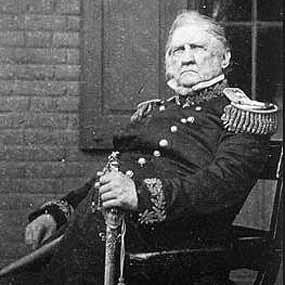Long before UPS and third-party logistics companies, these historic logisticians were laying the groundwork that powers commerce today.
Over the next several weeks I will unveil seven of history's most innovative logisticians as told by Philip Rudy a contractor for Diakon Logistics.
Last week we highlighted Christopher Columbus: A Logistical Pioneer.
Drumroll please, in reverse order:
6. Winfield Scott: A Native Logistician
The name Winfield Scott isn't as famous of some logisticians, but his approach was influential. During the Civil War, Ulysses Grant used logistical strategies that he learned from Scott. While fighting in the Mexican War of 1846 to 1848, Scott became frustrated by the need to continually secure his garrisons and supply lines from Mexico's guerrilla forces. To address his logistical problem, he cut his supply chain and purchased rations directly from the locals. This helped him increase his ranks and boost his resources.
This strategy of going native also worked for Grant at Vicksburg. Although his men carried bread, coffee and salt, Grant insisted on using natural resources. In a letter to Sherman, Grant said that he would "make the country furnish the balance." This strategy for locating an alternative to a traditional supply chain was successful and extremely controversial.,




1 comment:
Christopher,
The Army’s ranks have always been – and continue to be – filled with native logisticians! Current resupply of water and fuel continue to pose unique logistical challenges for units deployed in Afghanistan. Combat logistics patrols are often dangerous and returning with empty cargo often isn’t a priority. The Natick Soldier Research, Development and Engineering Center, (NSRDEC) developed and delivered CUBE modular system kits that allow for helicopter sling load and air drop resupply. Check it out: http://www.army.mil/article/70916/New_system_delivers_water__fuel_to_Soldiers/
Thanks,
Liv
Post a Comment